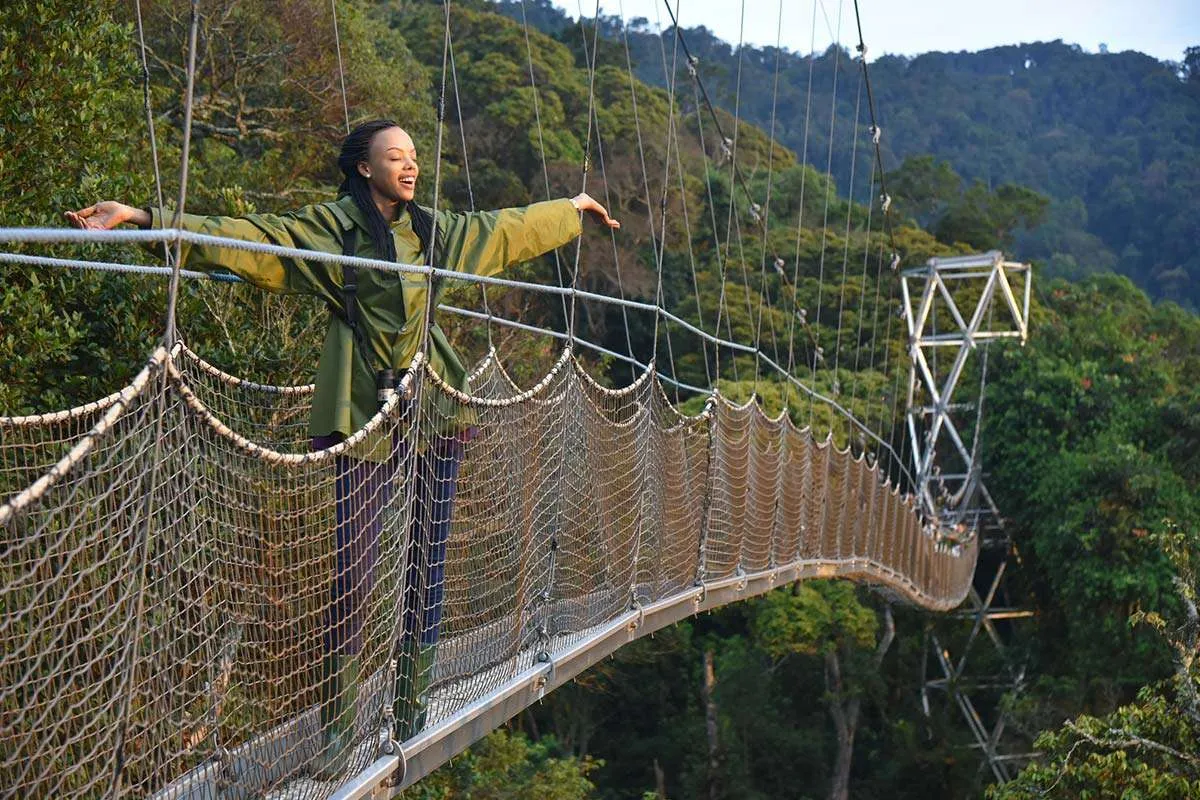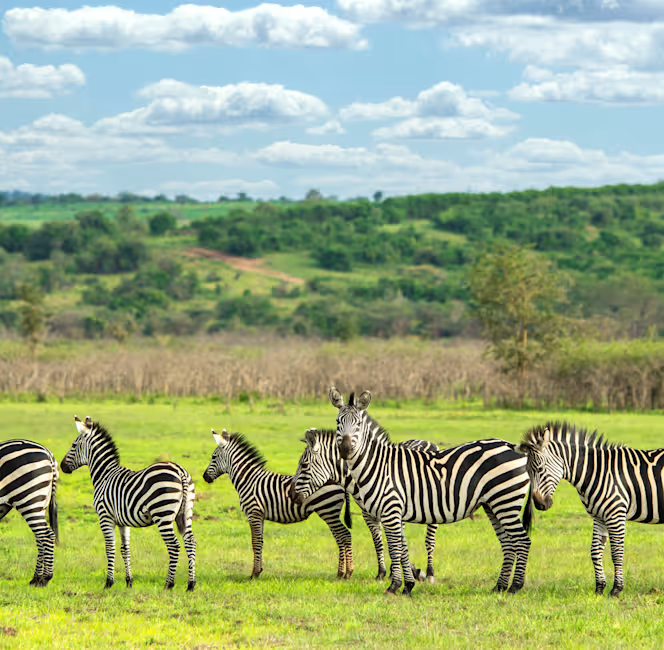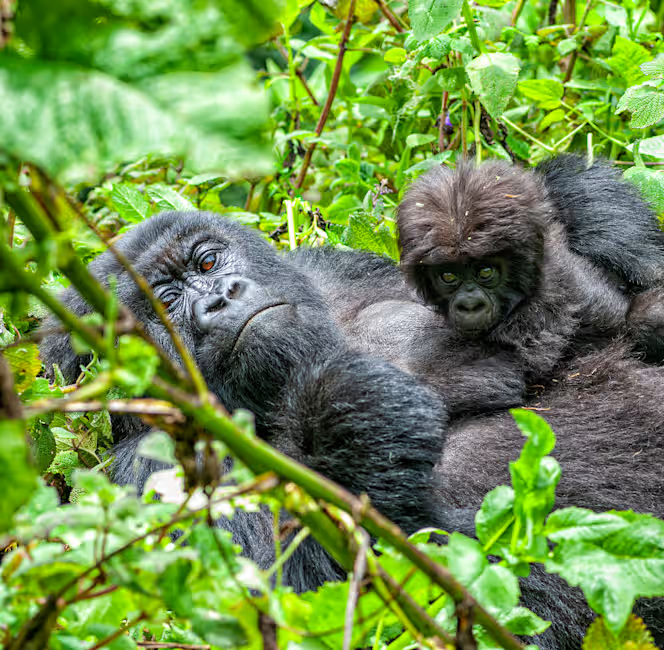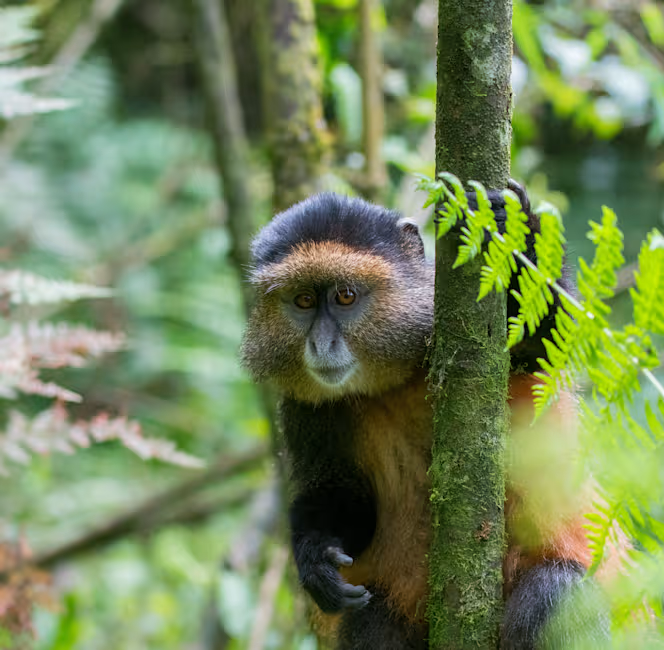Overview
Nyungwe Forest National Park, located in southwestern Rwanda, is one of the oldest protected areas in the country. Established as a national park in 2004, it covers approximately 1,019 km² and is situated near Cyangugu, close to Lake Kivu, and the borders with Burundi and the Democratic Republic of Congo. It is renowned for its rich biodiversity, including over 1,068 plant species and 310 bird species, with many endemics unique to the Albertine Rift.
The park is particularly famous for its populations of primates, hosting 13 species, including chimpanzees and black-and-white colobus monkeys. Nyungwe is home to over 500 chimpanzees and over 350 black-and-white colobus monkeys endemic to the Albertine Rift, whose clever antics and aerial acrobatics keep visitors gazing into the canopies.
The diverse habitats within Nyungwe range from montane rainforests to bamboo thickets and swamps, making it a vital ecological zone that supports a wide variety of wildlife. Visitors can explore the park through numerous hiking trails and experience the unique Canopy Walk, which offers stunning views of the forest from above.
The history of Nyungwe dates back thousands of years, with evidence of human presence for about 50,000 years. Initially declared a forest reserve in 1903 by colonial powers, the area faced significant threats from deforestation and poaching throughout the mid-20th century. However, conservation efforts have since revitalized the park’s ecosystem and tourism potential.
Today, Nyungwe is an important conservation area and a major attraction for ecotourism in Rwanda. Visitors are drawn to its unique wildlife and stunning landscapes. The park contributes to Rwanda’s economy through tourism and plays a crucial role in preserving the region’s natural heritage. Experiences in Nyungwe are a perfect addition to the gorilla trekking safaris in Volcanoes National Park, 267 km north of Nyungwe.

Biodiversity
Nyungwe National Park stands out not only for its stunning landscapes but also for its exceptional biodiversity. Its rich array of plant and animal life makes it a vital area for conservation and a prime destination for ecotourism in Rwanda.
Plant Biodiversity
Nyungwe is home to over 1,068 plant species, including:
- Tree Species: Approximately 200 tree species, such as Mahogany and Miliantus holstii, thrive in the park.
- Orchids: The park boasts around 248 orchid species, contributing to its floral diversity.
- Vegetation Zones: The park features various vegetation types, including montane forests, bamboo thickets, and sub-alpine vegetation, with some species found at elevations exceeding 2,950 meters above sea level.
The diverse altitudes create unique microhabitats that support an array of flora, making Nyungwe one of the richest botanical sites in the Albertine Rift region. Notably, it hosts 21 out of 24 endemic plant species specific to this region.
Animal Biodiversity
Mammals
Nyungwe is home to about 85 mammal species, including:
- Primates: The park is particularly famous for its 13 primate species, including:
- Common chimpanzees (approximately 500 individuals)
- Black-and-white colobus monkeys (notably large troops)
- Golden monkeys
- L’Hoest’s monkeys
- Grey-cheeked mangabeys
- Red-tailed monkey
- Owl-faced monkey
- Crowned monkey
- Dent’s mona monkey
- Velvet monkey
- Olive baboon,
- Angolan Colobus monkeys
Other mammals include duikers, golden cats, bushbucks, and elephants. Several of these primate species are classified as threatened by the IUCN.
Birds
Nyungwe Forest National Park is a birdwatcher’s paradise with over 300 bird species, including:
- Endemics: About 29 species endemic to the Albertine Rift, such as the Rwenzori turaco and the Albertine owlet.
- Conservation Status: Several bird species are classified as near-threatened or vulnerable.
Other Wildlife
Nyungwe also supports a variety of other wildlife, including:
- Reptiles and Amphibians: Approximately 30 reptile species and 12 amphibian species inhabit the park.
- Invertebrates: Over 120 butterfly species have been documented.
Nyungwe National Park plays a crucial ecological role by acting as a watershed for major rivers like the Nile and Congo. It supplies about 70% of Rwanda’s freshwater, highlighting its importance for both biodiversity and human communities.

Attractions
Nyungwe National Park is a unique ecological treasure characterized by its ancient rainforest, incredible animal diversity, and significant conservation efforts. Its combination of adventure activities and natural beauty makes it a must-visit destination for tourists interested in exploring one of Africa’s most pristine environments.
Chimpanzee Trekking
Chimpanzee trekking in Nyungwe National Park is one of Rwanda’s premier wildlife activities. Visitors have a unique opportunity to observe wild chimpanzee troops in their natural habitat. Chimpanzee tracking provides an exhilarating experience for nature lovers and offers a chance to connect with one of our closest relatives in the animal kingdom.
Only two chimp groups are habituated for tracking: the Uwinka and Cyamudongo groups. Depending on the chimps’ movements and their location within the park, the tracking can take 2 to 6 hours.
What To Expect
- Timing: Treks typically start early, with tourists required to report by 4:30 AM for a briefing at one of the ranger stations (Uwinka, Gisakura, or Kitabi) before heading into the forest around 5:00 AM.
- Physical Demands: The activity is physically demanding as chimpanzees are highly mobile and often venture into thick forest areas. Visitors should be prepared for challenging terrain.
- Guided Experience: Experienced park guides lead the tracking, often utilizing trackers who locate the chimps before the group sets out, increasing the chances of spotting them.
- Behavior Observation: Once found, visitors can spend about one hour observing the chimps, watching their social interactions such as grooming, playing, and feeding. Their behavior often mirrors human social dynamics.
Costs and Regulations
- Permit Fees: A chimpanzee trekking permit costs $100 per person per trek, which can be obtained from the Rwanda Development Board or through licensed tour operators like Nkuringo Safaris.
- Age Requirement: The minimum age for participants is 15 years.
Best Time for Tracking
While chimpanzee trekking in Nyungwe is available year-round, the best time is during the rainy season when food sources are plentiful, keeping chimps closer to trails. However, during dry seasons, they may venture deeper into the forest in search of food.

Canopy Walkway
Nyungwe Forest National Park features East Africa’s first canopy walkway, stretching 1 km long and standing 70 m above the ground. This walkway provides stunning views of the forest canopy and is a popular attraction for visitors.
The canopy walkway is approximately 160 meters long and is suspended 60 to 70 meters above the forest floor, making it one of the highest and longest canopy walkways in Africa. It consists of several sections, with the longest span being around 90 meters.
Experience
- Access: You can access the walkway via the Igishigishigi trail, which is about 2.1 km long. The hike to the canopy begins at the Uwinka Visitor Center, where visitors receive a briefing before embarking on the trail. All canopy walk experiences are guided, ensuring safety and enhancing the educational aspect of the visit. Unguided tours are not permitted.
- Duration: The entire experience, including the hike to the walkway and time spent on it, typically lasts about 2 hours.
- Wildlife Viewing: While walking on the canopy, visitors have the opportunity to observe various wildlife species that inhabit the treetops, including monkeys such as colobus and L’Hoest’s monkeys, as well as numerous bird species.
Cost
- For international visitors, the cost is approximately $40, while foreign residents pay around $20. This fee includes park entry and guiding services.
- Additional fees may apply for children and local residents.
- The minimum age for participation is 6 years, and an adult must accompany children.
